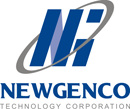Published by on

 Intel Xeon chips based on Ivy Bridge microarchitecture forthcoming and will initially target the type of server (Microserver) appears.
Intel Xeon chips based on Ivy Bridge microarchitecture forthcoming and will initially target the type of server (Microserver) appears.
Intel says it will launch Xeon server chips are its first 3D transistor in this quarter. This is a move which analysts say will increase the hardware intensity war cloud with rival AMD.
Intel said that its new Xeon chips will be based on Ivy Bridge microarchitecture forthcoming and will initially target the type of server (Microserver) appears. Microserver server is less power, have the shares are designed primarily for network service applications and cloud applications.
This new chip will replace E3 Xeon chip, is based on Sandy Bridge microarchitecture. E3 chip Intel introduced in March last year to open early for this kind of server, is still in the period of "infancy" but is expected to grow with the network activity and cloud in the data center .
Right now, Intel is dominant in the data center sector, and the company's chips are used in the majority of servers sold. But Intel is supporting more server resources for micro to low-cost alternative source of power to the server rack, blade and tower, to handle the workload, "heavier" than as database.
Intel said the new Xeon chips Microserver will have superior performance than previous chips while using the same amount of power. Factors driving the transistor 3D, located in the new 22nm manufacturing process Intel. Intel said the 3D transistor will not use half the energy and 37% faster than existing 32nm chips from Intel, which have 2D transistor. 3D transistor technology, known as gate transistor 3, replacing 2-dimensional planar transistor structure with a 3D structure raised from the silicon substrate.
To expand its presence in the field of Microserver, Intel has partnered with manufacturers SeaMicro servers, the company has been AMD (Advanced Micro Devices) acquired for $ 334 million in late February / 2012. Contract for this acquisition is considered a lost world for Intel. In response, Intel said they are developing IC I / O and its own chip technology to increase performance of Microserver.
According to Dan Olds, principal analyst at Gabriel Consulting Group, Microserver would be more appropriate for the data center is trying to operate in conditions of limited physical and economic.
Intel and AMD are competing in the market Microserver to solve the above drawbacks. Intel seems to have prevailed in performance, while AMD compete primarily on price, according to Olds.
Recently, AMD launched the Opteron server chip for Microserver 3200, the company has a product advertised as "low price for each person." AMD 3200 chip price from 99 USD to 129 USD, while the Intel chip's E3 in price from 189 USD. Analysts said that AMD will also replace the currently used Intel chips in servers with Opteron SeaMicro.
According to Dean McCarron, principal analyst of Mercury Research, Intel's new chip enables high performance, but customers use Microserver accepted or not can depend on what the end application.
Mr. McCarron said that in some cases prices are not more important for businesses that need scalable systems. In addition the market has many different designs Microserver, between Intel and AMD has tough competition to build huge data centers, in which thousands of servers deployed to handle cloud applications speed.
Intel also said they were going to launch low-cost Atom chips for Microserver power in the second half of this year. 64-bit chips will consume 6 watts of power and has all the main features of the server include virtualization features and ECC memory. The chip will be manufactured under a 32nm process so it will not have 3D transistor.
According to PC World VN / IDG News
